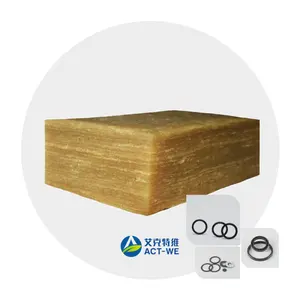
ACT-WE Free Sample Hnbr/ Nbr 3601 3305l 3605 3310L Rubber For Oil Seals And Oil Industry Accessories



















Leak proof materials encompass a diverse range of products designed to prevent water and other liquids from penetrating surfaces or joints. These materials are essential in various industries and applications, ensuring the integrity and longevity of structures and systems.
Leak proof materials include a variety of products such as waterproof membranes, sealants, and coatings. They are utilized in residential, commercial, and industrial settings, safeguarding everything from small fixtures to large buildings against water damage. Common applications include roofing, plumbing, and construction, where materials like leak proof liquid for cement are integral for moisture control.
The effectiveness of leak proof materials is attributed to their composition and features. Products in this category are often made from rubber, silicone, or specialized polymers that provide a resilient barrier against moisture. Some materials are designed for specific conditions, offering UV resistance or flexibility to accommodate structural movement.
Implementing leak proof solutions offers numerous benefits, such as protecting structures from water damage, preventing mold growth, and enhancing energy efficiency by sealing drafts. These materials are also crucial in preserving the structural integrity of buildings and ensuring the safety and comfort of occupants.
Choosing the right leak proof material requires consideration of the application area, exposure conditions, and compatibility with existing materials. It is important to select products that align with the project's specifications and environmental demands.
Today's market also reflects a growing demand for eco-friendly options. Sustainable leak proof materials are developed to reduce environmental impact without compromising performance, catering to a more eco-conscious industry.